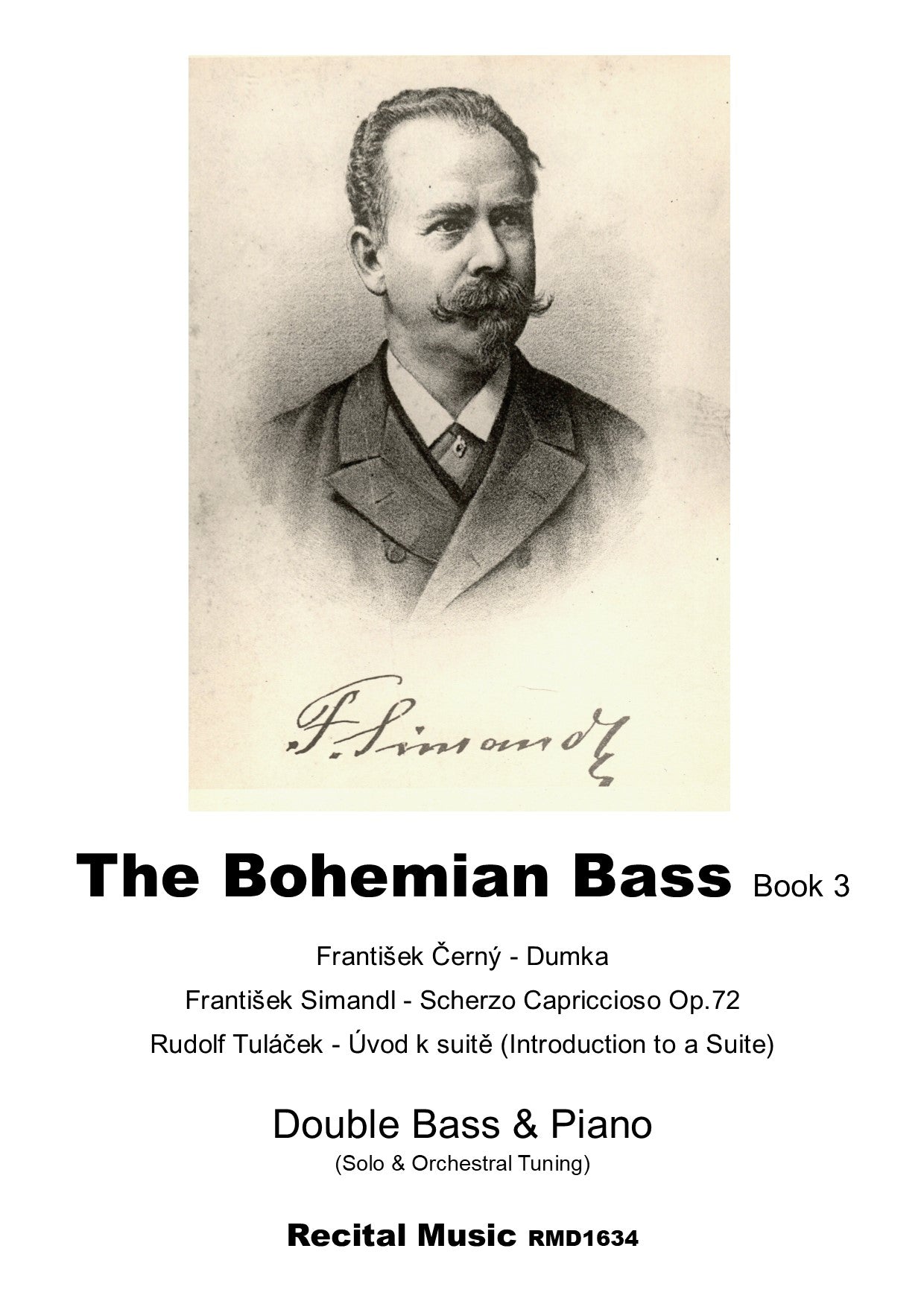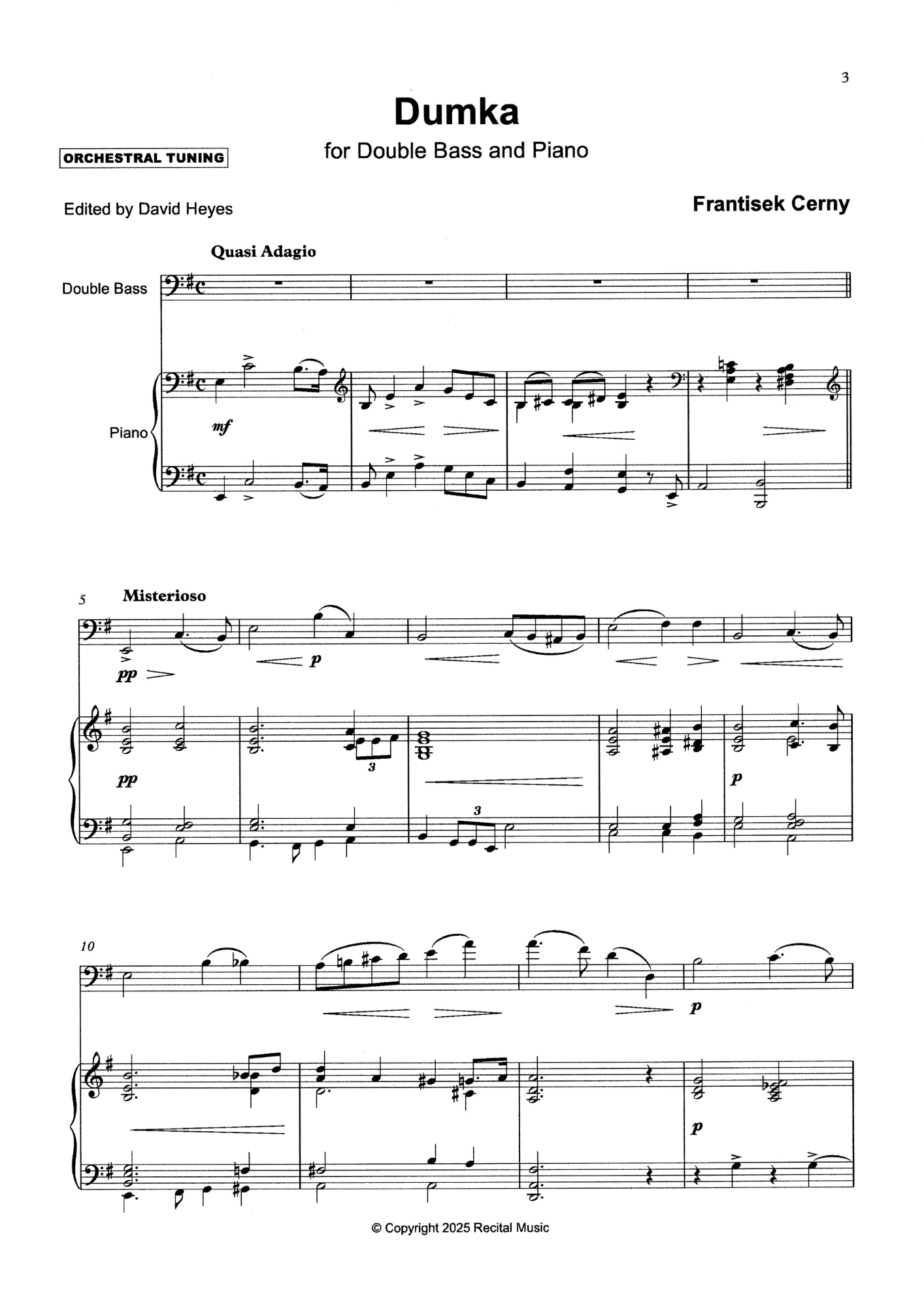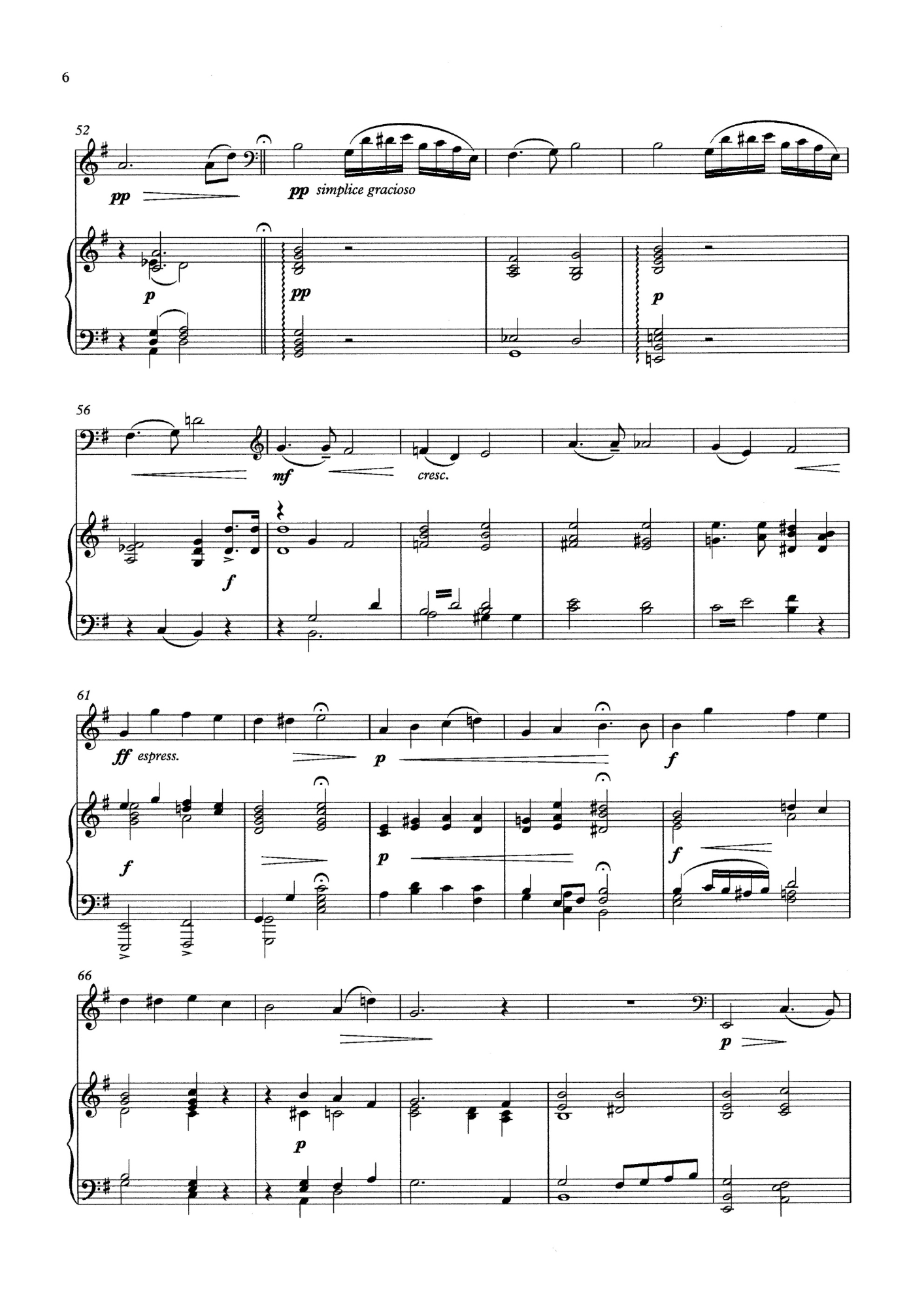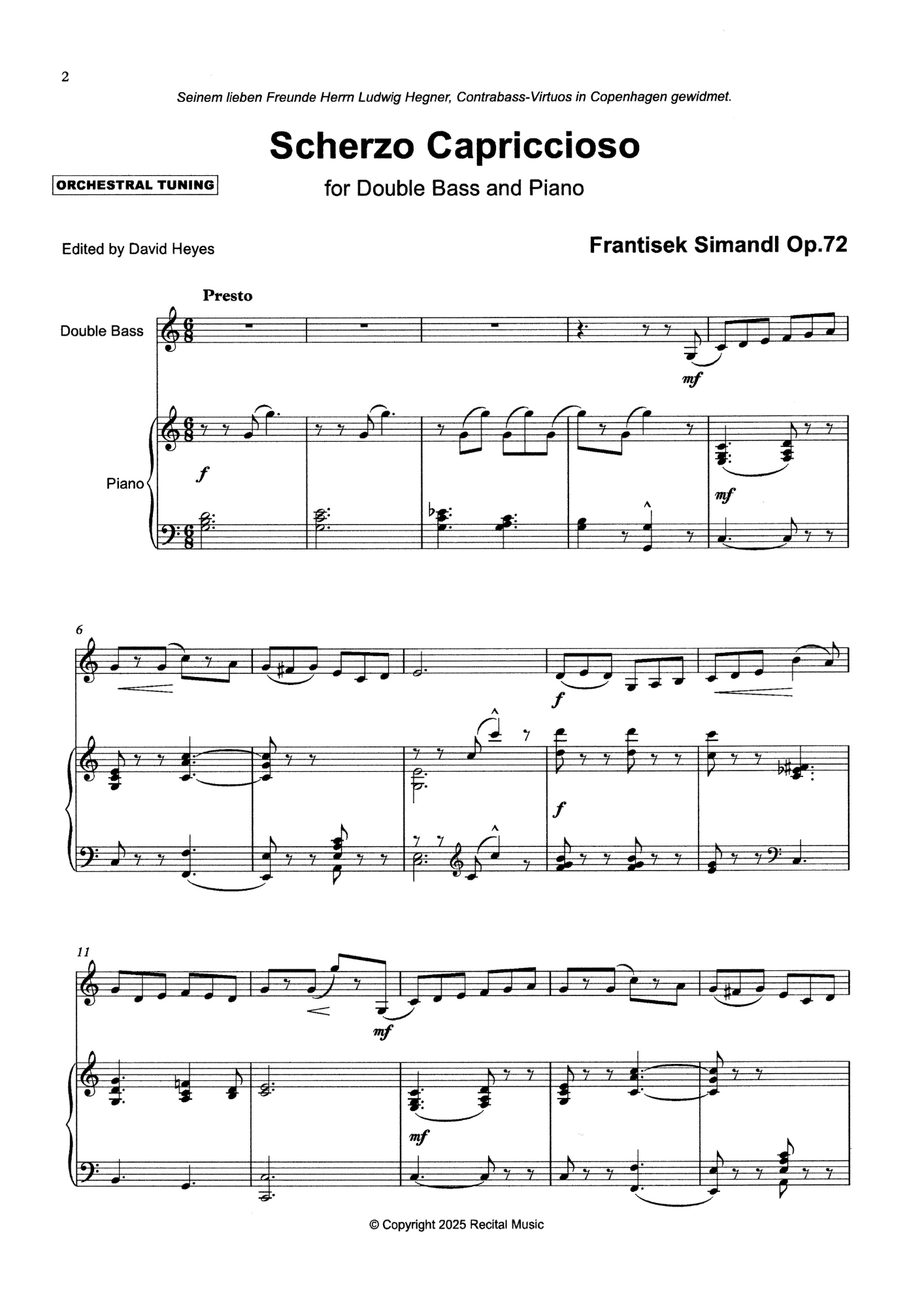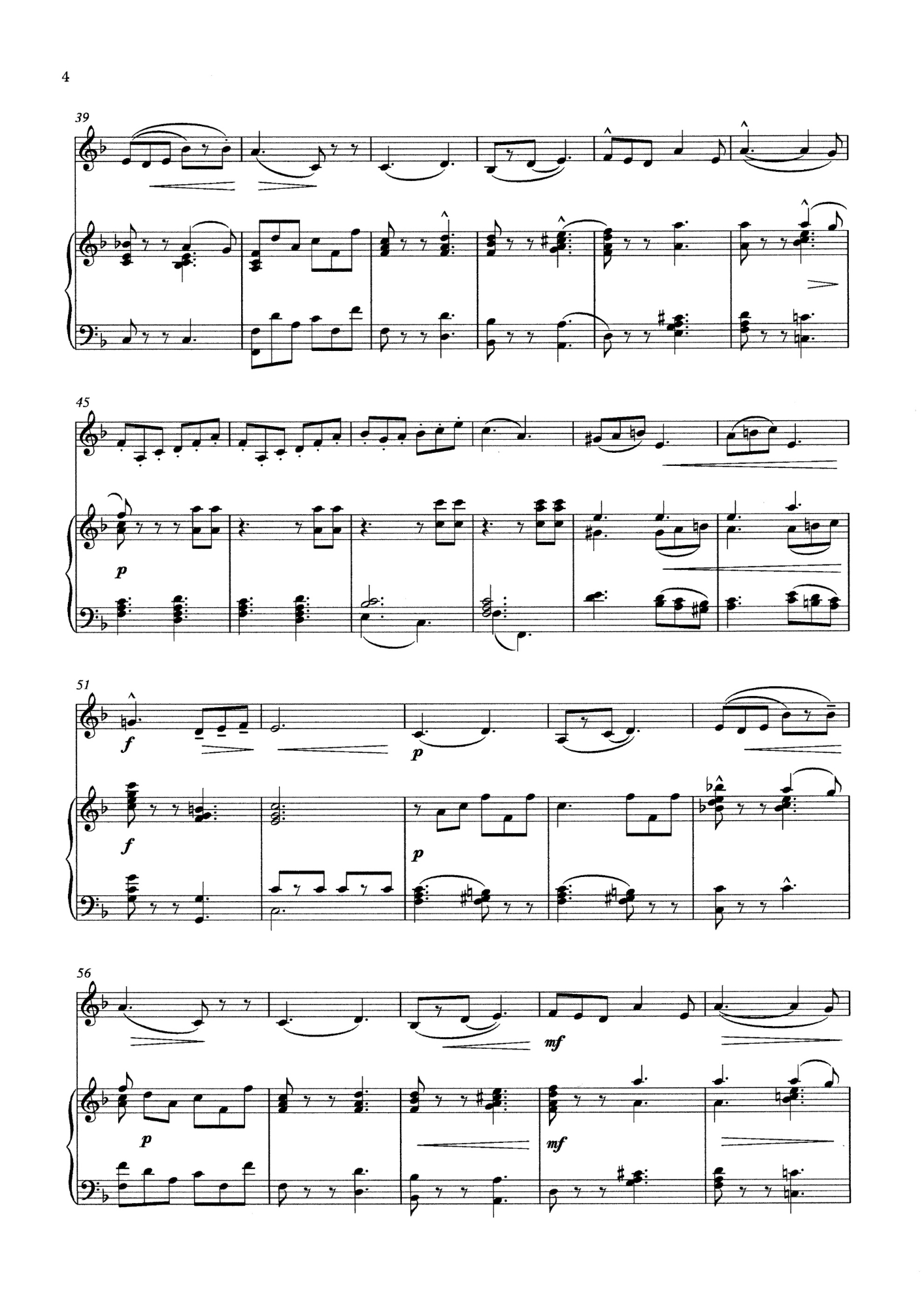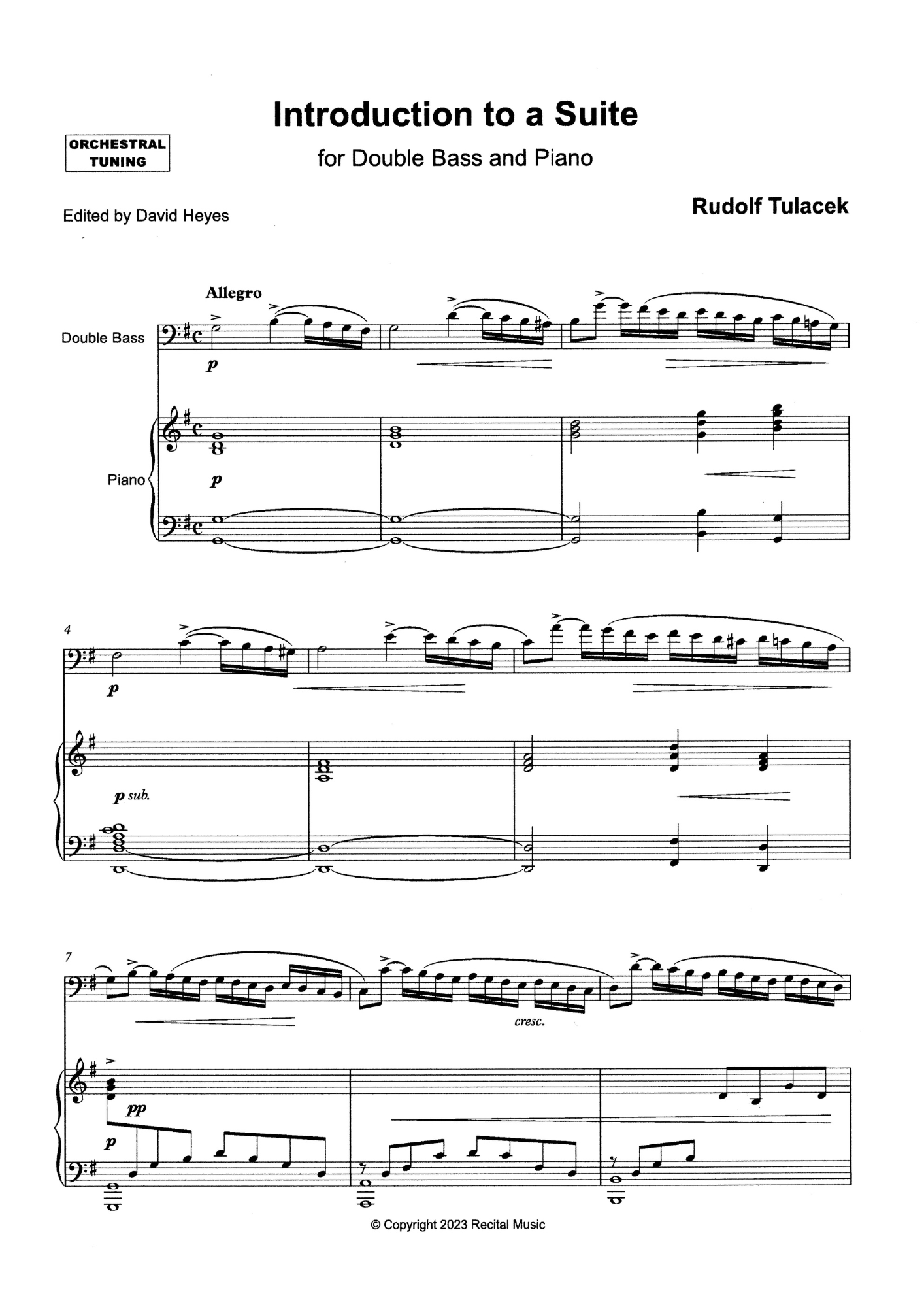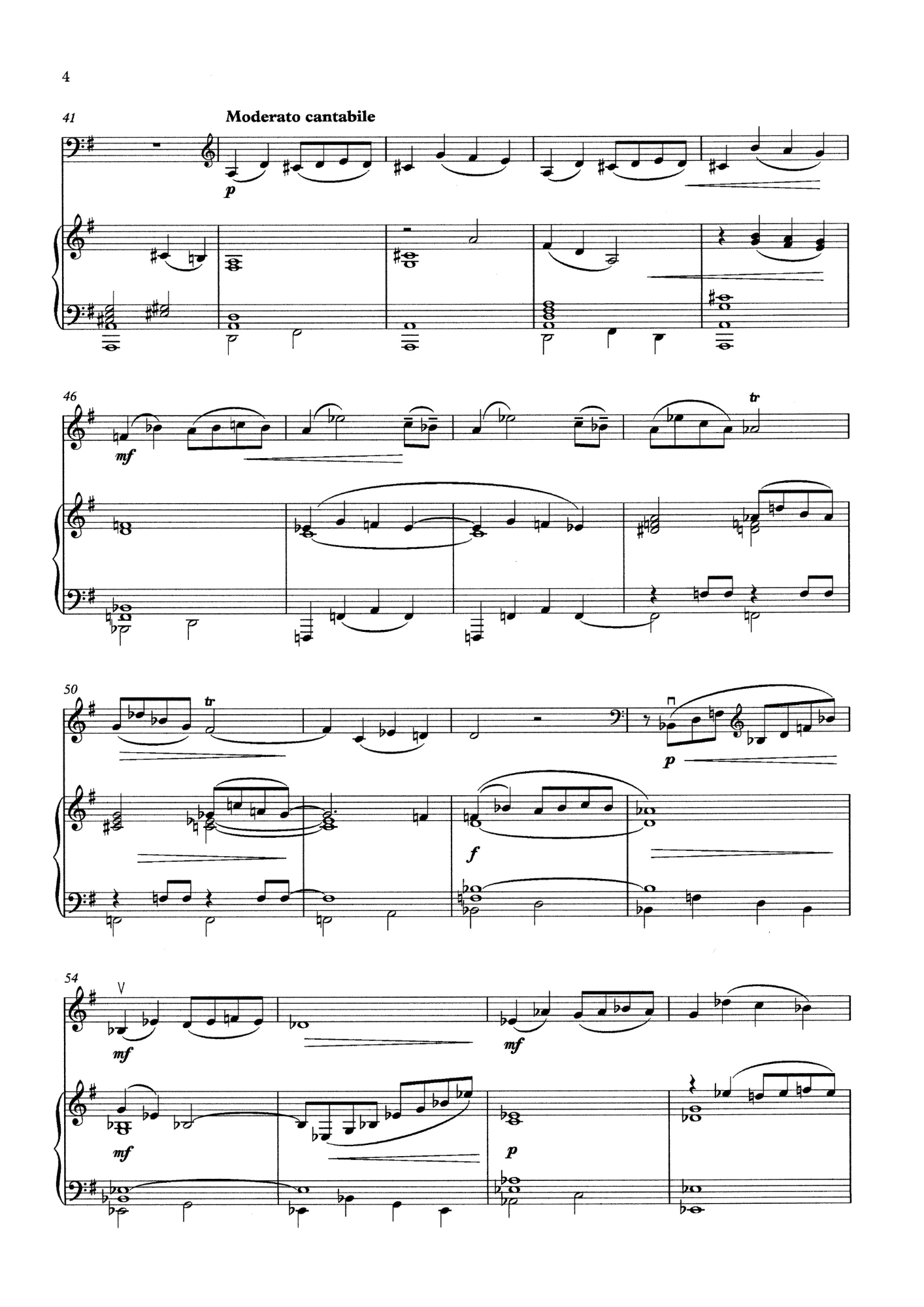David Heyes
The Bohemian Bass: Book 3 for double bass & piano (ed. Heyes)
The Bohemian Bass: Book 3 for double bass & piano (ed. Heyes)
Couldn't load pickup availability
About the Book
The Bohemian Bass: Book 3 brings together three impressive and inventive works for double bass and piano by leading members of the late 19th and early 20th- century Czech School of Double Bass. Aimed at the intermediate-advanced bassist, each piece explores the entire register of the instrument in a lyrical and expressive style, emphasising the cantabile, sonorous and virtuosic qualities of the solo double bass.
The series aims to create new and accessible editions of neglected pieces alongside piano accompaniments for solo and orchestral tunings, sometimes for the first time.
Table of Contents
1. František Černý - Dumka Dumka is a lyrical and evocative work for double bass and piano dating from the early years of the 20th-century. The piece is influenced by Dvořák and Smetana, and the music of central Europe, and is full of rich romantic harmonies and melodies, utilising more than a three octave range of the double bass. Černý’s music is always beautifully written for the double bass, exploiting the lyrical and cantabile qualities of the instrument, and this long-forgotten gem is worthy of a place in today's solo repertoire. The edition also includes a double bass part with the composer’s original fingerings. [A Dumka is a type of Slavic folk-ballad, alternately elegiac and more effervescent, and was a form frequently used by Dvořák.]
2. František Simandl - Scherzo Capriccioso Op.72 Scherzo Capriccioso is dedicated to Ludvig Hegner (1851-1923), himself a composer-bassist and one of Denmark’s most prominent and influential musicians. In one movement and brimming with character and rhythmic vitality, Scherzo Capriccioso is a fun showpiece which demonstrates the technical and lyrical possibilities of the double bass across much of its solo range. The accompaniment is colourful and supportive and this is ideal as both a study and concert piece.
3. Rudolf Tuláček - Úvod k suitě (Introduction to a Suite) Introduction to a Suite has remained unpublished until this edition and offers much to the enterprising bassist in search of interesting new repertoire. Composed in January 1953, but harking back to earlier times, there are musical and technical challenges in equal measure with contrasting sections which create a colourful tapestry of accessible and evocative styles and moods.
About the Composers
František Černý was a Czech bassist, teacher and composer. He was born on 23 January 1860 in Pardubice and studied at Prague Conservatoire (1876-82) and in Paris, where he later became a member of the Orchestre Colonne-Lamoureux (1884-1890). He returned to Czechoslovakia in 1890, when he was appointed Principal Bass of the National Theatre Orchestra in Prague (1890-1900). Černý was an outstanding teacher and taught at Prague Conservatoire for 31 years (1900-31) and many of the leading Czech bassists at the beginning of the 20th-century were taught by him. Černý studied composition with Antonín Dvořák and much of his music reflects the salon style of the late 19th-century. All his works are melodic and appealing, combining the late-Romantic idiom of Dvořák and Brahms, with Czech lyricism and influences, and he makes full use of the solo capabilities of the double bass. František Černý died in Prague on 3 September 1940.
František [Franz] Simandl (1840-1912) was one of the leading bassists and teachers of his generation and studied double bass at the Prague Conservatoire with Josef Hrabě. He became a member of the Vienna Philharmonic and taught at the Vienna Conservatoire, teaching bassists who exported the Czech double bass school to every corner of the world. Although Simandl's music has fallen from favour in recent times, he was a pioneer of his day and his New Method for Double Bass helped succeeding generations to build and develop the standard of double bass playing.
Rudolf Tuláček (1885-1954) was a leading Czech bassist of his generation and was a respected and influential teacher at the Janáček Academy of Music in Brno. In 1901 entered the Prague Academy of Music to study with František Černý, one of the Czech capital's leading bassists and teachers, and graduated in 1907 with the highest commendations from his professors, He became Solo Bassist in the Zagreb Opera Orchestra in 1909 and from 1920 he was also a Professor at the Zagreb State Academy of Music. In 1937 Tuláček became Professor of Double Bass at the Brno Academy of Music and in 1948 became the first Double Bass Professor at the newly founded Janáček Academy of Music in that city, where he taught until his death on 17 September 1954. Rudolf Tuláček studied composition at the Prague Academy of Music and later with Antonín Dvořák, and his music displays the lyricism and melodic qualities typical of the salon music of the day, alongside compositions of great virtuosity and energy.
